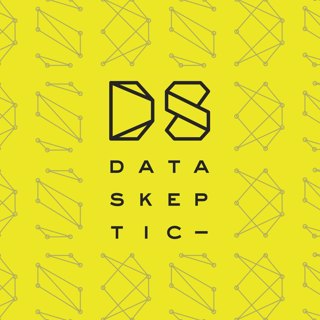
Machine Learning Done Wrong
Cheng-tao Chu (@chengtao_chu) joins us this week to discuss his perspective on common mistakes and pitfalls that are made when doing machine learning. This episode is filled with sage advice for beginners and intermediate users of machine learning, and possibly some good reminders for experts as well. Our discussion parallels his recent blog postMachine Learning Done Wrong. Cheng-tao Chu is an entrepreneur who has worked at many well known silicon valley companies. His paper Map-Reduce for Machine Learning on Multicore is the basis for Apache Mahout. His most recent endeavor has just emerged from steath, so please check out OneInterview.io.
1 Huhti 201625min

Potholes
Co-host Linh Da was in a biking accident after hitting a pothole. She sustained an injury that required stitches. This is the story of our quest to file a 311 complaint and track it through the City of Los Angeles's open data portal. My guests this episode are Chelsea Ursaner (LA City Open Data Team), Ben Berkowitz (CEO and founder of SeeClickFix), and Russ Klettke (Editor of pothole.info)
25 Maalis 201641min
![[MINI] The Elbow Method](https://cdn.podme.com/podcast-images/C725BFCF70FD83ABE87D0DEF480DE22A_small.jpg)
[MINI] The Elbow Method
Certain data mining algorithms (including k-means clustering and k-nearest neighbors) require a user defined parameter k. A user of these algorithms is required to select this value, which raises the questions: what is the "best" value of k that one should select to solve their problem? This mini-episode explores the appropriate value of k to use when trying to estimate the cost of a house in Los Angeles based on the closests sales in it's area.
18 Maalis 201615min

Too Good to be True
Today on Data Skeptic, Lachlan Gunn joins us to discuss his recent paper Too Good to be True. This paper highlights a somewhat paradoxical / counterintuitive fact about how unanimity is unexpected in cases where perfect measurements cannot be taken. With large enough data, some amount of error is expected. The "Too Good to be True" paper highlights three interesting examples which we discuss in the podcast. You can also watch a lecture from Lachlan on this topic via youtube here.
11 Maalis 201635min
![[MINI] R-squared](https://cdn.podme.com/podcast-images/7B58CFBACAEF92685AA1D1A40E871F2F_small.jpg)
[MINI] R-squared
How well does your model explain your data? R-squared is a useful statistic for answering this question. In this episode we explore how it applies to the problem of valuing a house. Aspects like the number of bedrooms go a long way in explaining why different houses have different prices. There's some amount of variance that can be explained by a model, and some amount that cannot be directly measured. R-squared is the ratio of the explained variance to the total variance. It's not a measure of accuracy, it's a measure of the power of one's model.
4 Maalis 201613min

Models of Mental Simulation
Jessica Hamrick joins us this week to discuss her work studying mental simulation. Her research combines machine learning approaches iwth behavioral method from cognitive science to help explain how people reason and predict outcomes. Her recent paper Think again? The amount of mental simulation tracks uncertainty in the outcome is the focus of our conversation in this episode. Lastly, Kyle invited Samuel Hansen from the Relative Prime podcast to mention the Relatively Prime Season 3 kickstarter, which needs your support now through Friday, March 11th, 2016.
26 Helmi 201639min
![[MINI] Multiple Regression](https://cdn.podme.com/podcast-images/7B40A787711FC3831485B8D24E0F9472_small.jpg)
[MINI] Multiple Regression
This episode is a discussion of multiple regression: the use of observations that are a vector of values to predict a response variable. For this episode, we consider how features of a home such as the number of bedrooms, number of bathrooms, and square footage can predict the sale price. Unlike a typical episode of Data Skeptic, these show notes are not just supporting material, but are actually featured in the episode. The site Redfin gratiously allows users to download a CSV of results they are viewing. Unfortunately, they limit this extract to 500 listings, but you can still use it to try the same approach on your own using the download link shown in the figure below.
19 Helmi 201618min

Scientific Studies of People's Relationship to Music
Samuel Mehr joins us this week to share his perspective on why people are musical, where music comes from, and why it works the way it does. We discuss a number of empirical studies related to music and musical cognition, and dispense a few myths about music along the way. Some of Sam's work discussed in this episode include Music in the Home: New Evidence for an Intergenerational Link,Two randomized trials provide no consistent evidence for nonmusical cognitive benefits of brief preschool music enrichment, and Miscommunication of science: music cognition research in the popular press. Additional topics we discussed are also covered in a Harvard Gazette article featuring Sam titled Muting the Mozart effect. You can follow Sam on twitter via @samuelmehr.
12 Helmi 201642min




















